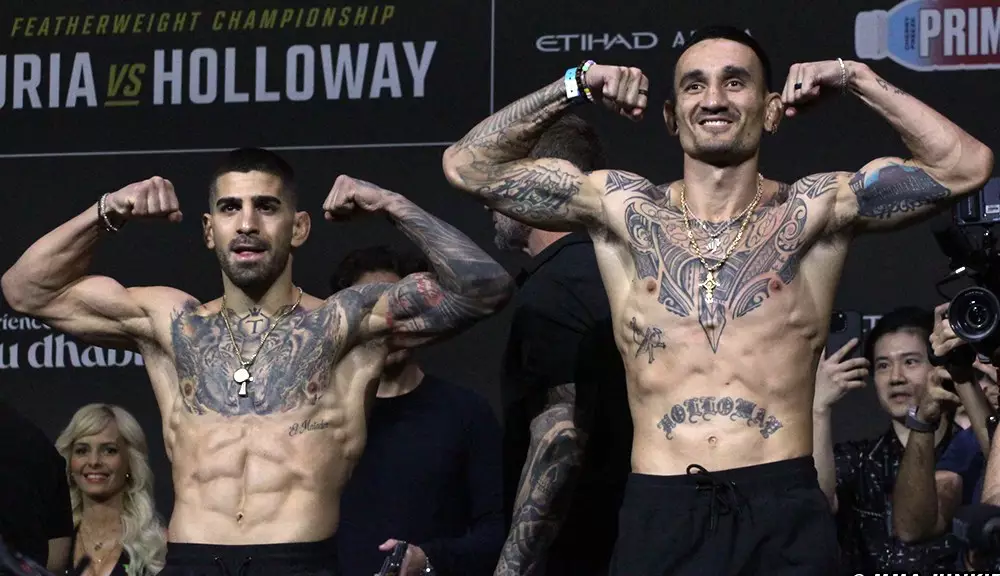In the world of mixed martial arts (MMA), fighters often face pivotal moments in their careers that force them to make challenging choices about weight classes and competitive aspirations. Ilia Topuria, the undefeated featherweight champion with a record of 16-0, has recently decided to vacate his title in order to move up to lightweight. This decision raises questions, particularly regarding his ability to compete at lightweight, as highlighted by UFC analyst Daniel Cormier. Cormier has expressed skepticism about Topuria’s claims, noting that he has competed at lower weight classes earlier in his career, including bantamweight.
Cormier’s Concerns: Size and Competition
Cormier’s critical perspective stems from his firsthand experience training alongside some of the biggest names in the lightweight division, such as Islam Makhachev and Charles Oliveira. During a segment on his podcast, Cormier noted, “I don’t feel like he’s a big guy,” contrasting Topuria’s physique with that of established lightweight contenders. This commentary brings forth a crucial aspect of competitive fighting that often goes overlooked: the physical demands and advantages presented by each weight class.
Cormier’s doubts about Topuria’s ability to sustain a weight cut to 145 pounds raise a critical point about fighters’ adaptability as they progress in their careers. Topuria’s prior fight at lightweight against Jai Herbert, which ended in a knockout victory, demonstrates that he is not unfamiliar with the higher weight class competition. However, the lingering question remains: has he outgrown featherweight, or is this a strategic retreat from the rigors of making weight?
The Strategic Withdrawal from the Featherweight Title
Beyond physical considerations, Topuria’s decision to vacate his title has strategic implications. Cormier expressed surprise that Topuria did not opt to hold on to the championship while simultaneously pursuing opportunities in the lightweight division. The vacant featherweight title will now be contested by Alexander Volkanovski and Diego Lopes, an unexpected turn of events for a fighter like Topuria, who had significant momentum after defeating Max Holloway.
Was this withdrawal a narrative shift aimed at embracing new challenges or a calculated acknowledgment of his limits at 145 pounds? The decision not to fight for an interim title, especially following a successful year that included victories against respected opponents, indicates a complex mindset. Perhaps there lies an understanding within Topuria that competing in multiple weight classes is not merely about physical capacity; it involves navigating the landscape of the sport, which is often dictated by marketability, personal health, and ultimately, legacy.
As Ilia Topuria embarks on this new chapter in his MMA career, the implications of his decision to transition to lightweight will likely unfold in the coming months. Cormier’s critical assessment sheds light on the nuanced considerations that fighters must make as they adapt their training, strategies, and expectations across weight classes. Ultimately, the journey from featherweight to lightweight can serve as a testament to a fighter’s growth, resilience, and understanding of their own capabilities. Whether Topuria can establish himself as a formidable force at lightweight remains to be seen, but one thing is clear: the conversation surrounding weight classes in MMA is as multifaceted as the sport itself.

